|
Letting go of control is about loosening our grip, allowing ourselves to be supported, and trusting that things will turn out as they are meant to be.
Most of us have at one time or another wanted something so badly, that we obsessively think about how much better our lives would be if only we had that thing. Or we incessantly beg God and the universe to bring it to us, without letting it go and trusting that it is no longer in our hands. I know I can relate to this - trying to control outcomes and the timing in which they come. This behavior often results in losing sight of what we do have and can prevent living in the present and with appreciation. We Attract What We Put Out According to the Law of Attraction, energy precedes manifestation, meaning that positive thoughts and actions lead to positive experiences and outcomes, while negative thoughts and actions lead to negative ones. In layman's terms - what we put out, we draw towards us. Taking this a quantum step forward, the Law of Vibration states that everything in existence is in a constant state of movement, or vibration, at a specific frequency. Combining these two universal laws, it has long been concluded that when things vibrate at the same frequency, they will be attracted to one another. So, let's take a quick jump back to the idea of "control" and trying to force what we want to manifest. Think about this - if we are in a state of "wanting," we are putting out a frequency (or telling the universe) that we are in "lack" or that we "don't have" what we want. For the universe, who communicates strictly on vibration and frequency, the message coming through is "I don't have this" - and the matching frequency to this message that you would attract towards you is "more of what you don't have." However, in reality, this is not what you are trying to achieve! In fact it is the complete opposite, so it's vital to see that the harder we hold onto that emotion of wanting, of focusing on what is "missing" will actually invite more of it. It is our desire to control the outcome that can actually stand in the way of the end result we are seeking. Releasing Can Actually Help in Attracting What We Desire Sometimes, releasing the need to control everything allows us to be in a mindset of receiving. After all, in order to get what we desire, we need to be receptive. Letting go not only allows us to stress less and feel more capable of handling what life throws our way, but it can also produce a greater sense of peace, especially when you're facing uncertainty or going through a life transition. Once you are aware of what it is you want to manifest - what outcome you envision in your life - and put it out to the universe, the best thing to do next is to just let it go. This involves trusting that God, the universe, Spirit, will bring to you the opportunities for your desired outcome to come to fruition. When you release things you can't control, you can focus on the things you can, which can give you more time and energy and allow for you to maintain a higher, receptive vibration. Think of the following analogy. If you put your hands in water and attempt to grasp the water, what happens? You will notice that your hands will be empty when you tighten your grip to grab it. But, alternatively, if you lay your hands facing upward in an open cupped position, you will find that your hands will hold the water. In this way, you are not forcing and holding tight, you are gently letting go and allowing the water to fill up your hands. Letting go of our strong grip on our desires has very much the same effect. It doesn't mean we are letting go of what we want, it simply means we are not trying to force it and we are allowing things to flow naturally towards us. Love & Light, -Elisa
0 Comments
Mental clutter can negatively impact your ability to focus and process information. A cluttered mind can result in constant stress, which can lead to anxiety, procrastination, difficulty in relationships, make it harder to control impulses, as well as anxiety and even depression.
As you embrace Spring and all its loveliness, consider engaging in some mental practices that can help clear the clutter that might be taking up valuable space in your mind: Declutter Your Environment A cluttered space can lead to a cluttered mind. This is because clutter and mess are linked to negative emotions like confusion, tension, and irritability. On the contrary, an organized home and work environment can produce more positive emotions like calmness and a sense of well-being. Take time to declutter your living and workspaces, creating a more organized environment and notice how you feel lighter, more relaxed and focused. Practice Mindfulness Mindfulness involves sitting still, focusing on your breath, being fully present and letting go of any thoughts that arise. Any thoughts, emotions, and physical sensations that do arise should be allowed to flow through without judgment. Incorporating mindfulness techniques such as meditation and deep breathing exercises is great for alleviating anxiety associated with cognitive overload or simply put, a cluttered mind. Journaling Journaling is a practice that enables you to empty your mind and organize your thoughts. Done regularly, it can help you process information clearly, stimulate creativity, and detach from negative experiences. Writing things down allows you to organize your thoughts, improve your memory, and reduce intrusive thoughts about negative events. In addition, you will be more likely to gain control of your emotions, boost your mood, and improve your mental health. Prioritize Tasks Prioritizing tasks based on importance and urgency can aid in the reduction of mental clutter by helping you focus on what needs to be done first. It provides a way for you to focus on what needs to be done first and prevent feeling overwhelmed and stressed. Clear Your Calendar A jam-packed calendar can make it hard to concentrate, cause needless stress and interfere with your ability to focus. One solution is to schedule future commitments that do not require your immediate attention. Of course, eliminating certain tasks altogether that don't serve you or bring you joy is an additional option. Develop Routines, Systems, and Habits Creating habits that help you start your day with a clear mind, and end your day with a more relaxed body and mind does wonders for reducing mental clutter. A study by Tel Aviv University found that predictable, repetitive routines can help reduce anxiety and help you take control of your day. Daily routines and having a et schedule can provide a sense of structure and predictability, which can reduce stress, anxiety, and maintain good mental health. Building time into your routine to give your mind a chance to process and transition from one thing into the next is a beneficial habit. For example, you can take a short walk between meetings, or stop for a minute of deep breathing before starting a new task. Practice Self-Care Spending more time doing things that are good for your mind, body, and soul are all part of holistic self-care, which is a wonderful way to clear out the clutter of negative thoughts and stagnant energy. This includes nutritious eating, a good movement routine and lots of time spent in nature. Till next time, Elisa Today, more than ever, there are resources for almost any need, enabling better outcomes in life endeavors. When it comes to our weddings, we work with wedding planners, when it comes to leveling up our athletic abilities, we hire sports coaches and when it comes to professional success, we engage the services of high powered career and business coaches.
So why is it that when it comes to divorce, which has a huge affect on every aspect of our lives - emotional, financial, residential, parental and long-term living - do we opt to go it alone? I'm talking both from personal and professional experience here. During my own divorce, which, by the way was horrible and traumatic on every level, I mistakenly assumed that my divorce attorney had all the answers that I needed to get me through the process and secure a successful outcome. I could not have been more incorrect in my assumption! Not only was I wrong in relying solely on my attorney to fill the plethora of professional needs that were suddenly cast upon me, but the result of doing so had negative lasting effects on my life (and that of my children) long after my divorce was finalized. My harrowing ordeal led to my mission to devise a means to minimize distress and maximize triumph through divorce for others. Divorce coaching can make this difference between floundering through the abyss of divorce as a novice versus marching through confidently armed with a charted course like a skilled navigator. With this in mind, obtaining coaching prior to "pulling the trigger", or in legal terms, "filing for divorce" ensures better navigation of the divorce journey and post-divorce outcomes. Here are 8 reasons why your first professional meeting should be with a divorce coach: 1. Informs and Explains Divorce Basics Divorce is very overwhelming and there are lots of moving parts to the process. From my professional experience, clients that begin the process with clarity tend to avoid the major pitfalls and mistakes that can cause undue stress, wasting valuable time and incurring unnecessary legal bills. Take for instance, Kate, who was an 18-year stay at home mom. Kate came to me when she was still in the initial stages of contemplating divorce. In fact, she hadn't even told her husband about her desire. Throughout the first month of our coaching, she gained an understanding of the divorce basics such as formulas used to calculate spousal and child support, usual and customary visitation schedules, the way divorce attorneys charge their clients and general hourly rates, referrals for legal representation as well as dozens of questions to ask her attorney at their first meeting along with a checklist of what documents to bring with her. She also gained access to accounting and financial professionals who advised her with financial/tax advice for moving forward. As a result of being prepared, Kate was more confident about what to expect, and was able to complete the entire divorce process within six months, allowing her to move forward with her new life. 2. Fosters Future Life Vision & Goal Setting Having a divorce coach enables a client to take control of their situation by defining their desired outcomes in all life areas, setting goals and creating a vision for post-divorce life. With the support needed to stay focused, identifying and implementing the necessary action steps to achieve this end is possible. Having an accountability partner makes it less likely to get sidetracked with petty nonsense or time wasting arguing over things that do not serve to reach desired goals. 3. Enables an Empowered Mindset Most individuals are blindsided by divorce because of the upheaval experienced across all areas. As a result, it is common to become hyper-focused on the current situation, often getting stuck in a downward spiral of fear, lack and diminished self-esteem. A coach will assist with reframing the negative mindset with introspective exercises that uncover self limiting beliefs and build self confidence. With this mindset shift comes greater empowerment as the architect of your life and an ability to embrace positivity moving forward. 4. Gives Empathetic Emotional Support Let's face it, we all need empathetic support, understanding and a shoulder to lean on when we go through any life change, especially divorce, which can be quite traumatic. The emotional turmoil caused by the multitude of changes - from losing a partner (whether the relationship is good or bad), to a change in routines, living quarters, the break-up of a family, not seeing children daily, financial pressures and coming face to face with an uncertain future - are often too much to metabolize. A coach provides the emotional support to develop structure through this life transition. With an empathetic ear, a hand to hold, and a strategic partner, a coach assists with finding the confidence and strength within. 5. Facilitates Stress and Overwhelm Management One of the key aspects of coaching is to enable clients to better manage stress. Divorce brings with it tremendous stress and overwhelm, requiring effective means for individuals to move into a more relaxed state. A good coach will also introduce much needed stress management techniques such as breathing and mindfulness practices to take control and reduce these strong reactions during divorce. 6. Liaison to Vetted Legal and Business Divorce Experts Access to divorce professionals such as family law attorneys, accounting, tax and wealth managers, insurance experts, estates lawyers, personal credit and loan professionals will ensure expert input throughout the process and a solid divorce agreement. Working with a divorce coach that has established relationships with skilled individuals is yet another benefit. 7. Mitigates Time, Effort, & Money on Your Divorce My passion for being a divorce coach came out of my own difficult experience through divorce. The knowledge I acquired came at a hefty price in terms of the wasted time, effort and money. Unfortunately, in life, you don't know what you don't know and when fear and overwhelm are coupled with a lack of knowledge and experience, it is the perfect storm to get clobbered. A divorce coach is there to save clients the one commodity they can never get back - time. Providing clarity coupled with guidance, clients will avoid time and effort wasting endeavors and racking up needless legal fees that can result. Additionally, with coaching support, reaching out to your attorney for emotional comfort is less likely which mitigates legal fees. 8. Provides Strategies to Regain Normalcy In Day-to-Day Life The early stages of divorce result in being left with a change in routines, housing and living arrangements, severed family relations, and feeling enormously unsettled and desperately in need of some semblance of normalcy to maintain sanity. With a keen understanding of the agonizing distress being experienced, a divorce coach will provide easy to process and implement strategies to regain control and create a new normal for moving forward. Till next time, Elisa At the beginning stages of divorce, many individuals believe that the first step is to seek out the advice of an attorney. While understanding the law and the possible financial outcomes of asset distribution, alimony, and child support is a vital part of the divorce process, equally important is knowing the current state of your finances.
In my coaching practice, I never tire of emphasizing the fact that divorce is truly a team effort. Having the right emotional and mindset support, coupled with good legal counsel is one aspect of a successful divorce outcome. Equally vital, from the beginning of the process is expert input from a financial advisor in order to secure a clear picture of your current economic situation. Not only will this empower you to know where you stand from day one, but armed with a professional overview of your financial position during an initial legal consultation will facilitate a better understanding on the part of the attorney and more informative answers for you. What is a Financial Professional? A financial professional's job is to look at a client’s entire financial picture, which includes cash flow, estate planning, taxes, investments, and insurance - and to advise them on how to achieve their short and long-term financial goals. Value of a Financial Professional During Divorce When it comes to divorce, working with a financial professional can help you understand the true value of your assets, including real estate, investments, and retirement accounts, in order to enable the negotiation of a fair settlement based on the true value of your assets. According to Adam Minker*, Forest Hills Financial Group, "I am of the opinion that it takes a team to work with a client, where experts are able to help mitigate exposure, especially since each person's situation is unique and there is no cookie cutter plan." Minker goes on to say "It's important for divorcing individuals to encourage collaboration between their divorce attorney and financial professional. This will enable attorneys to negotiate better on their client's behalf and safeguard the client's best financial interests post-divorce. What is Most Needed At Each Stage of Divorce Each stage of the divorce process is nuanced with different issues. Financially speaking, clarity and understanding are the best way to protect your interests now and in the future. Here are some important factors for your financial wellness when contemplating, going through, and following divorce. 1. Prior to Divorce - Contemplating It's always a good ideal to get a sense of where you stand financially prior to embarking on a major life change like divorce. "This will not only help when meeting with your divorce lawyer to have a full sense of where you are financially, but will also give you some insight into the documents that will be needed during divorce, and which ones need updating after you've filed and then following divorce," according to Adam Minker. These documents may include tax returns for past 2-3 years, power of attorney, w2's, asset list and possible valuations, trusts (revocable/non revokable), 401K and monies invested in stocks, bonds and other, beneficiary information, life insurance and your last will and testament. Be sure to check with your attorney as to which documents can legally be changed before divorce, before taking any action. During Divorce- After Filing At this stage, your financial professional can serve you best by being available to work with your divorce attorney and other members of your divorce team to ensure that all negotiations reflect their input for the most robust agreement possible. While attorneys are experts in the law and represent you in negotiations with the other side, as well as with the court, they can do their job best when they are supported with as much vital information as possible. This includes any financial strategies for your well being post divorce which you have put together with your trusted financial advisor. "This is why it is critical to work with a financial professional with proper resources and the ability to help restructure a financial future that encompasses your life goals so they can create a plan that meets these needs," says Minker. One of the tools that Minker's team uses is a Living Balance Sheet, a proprietary means that gives their clients the opportunity to structure and restructure their financial present and future as well as functioning to ensure proper life long protection. Post Divorce - Divorce Agreement Filed Once your divorce agreement is finalized and filed, you are now free to begin moving forward with your life. By this point, you will know what assets are yours so you can take the next steps with your financial professional to implement the strategies discussed during the divorce process so you can secure your financial future. - Elisa * Disclosure Financial Representative of The Guardian Life Insurance Company of America® (Guardian), New York, NY. Forest Hills Financial Group is not an affiliate or subsidiary of Guardian. This is for informational purposes only and is not to be construed as tax, legal, or investment advice. Although the information has been gathered from sources believed to be reliable, please note that individual situations can vary. Therefore, the information should be relied upon only when coordinated with individual professional advice. Guests and their firms are not affiliated with or endorsed by PAS, Guardian, or Forest Hills Financial and opinions stated are their own. Guardian, its subsidiaries, agents and employees do not provide tax, legal, or accounting advice. Consult your tax, legal, or accounting professional regarding your individual situation. 2024-171772 Exp 03/24 Spring is the season of new beginnings and welcomes this change with nature emerging from hibernation.
This is a wonderful metaphor for our own spiritual rebirth and yearning for a more fulfilling, meaningful existence. Starting with a greater sense of awareness or grounded-ness, the natural progression often leads to a wider perspective on life and a search for a deeper sense of purpose. What is Spiritual Development? Fundamentally, spiritual development is when we begin to ask ourselves deeper questions about the meaning and purpose of our life. It includes consciously embarking on a journey to realize or become increasingly aware of our natural, innate purpose and place within the universe. This exploration may also include a search for the "truth" and questioning long-held beliefs, shedding old patterns, and embracing new perspectives that promote personal growth. Expanding one's spirituality has some distinct differences from being or becoming more religious. Religion is a specific set of organized beliefs and practices, usually shared by a community or group. Spirituality is more of an individual practice and has to do with having a sense of peace and purpose. Of course, this does not mean that the two cannot go hand in hand. For the purposes of this article, we are talking about the oneness and alignment with oneself as a spiritual being and place within the bigger picture. What Triggers a Spiritual Awakening? A spiritual awakening can be caused by a number of life experiences. Impactful, life-changing events such as the death of a loved one, serious health crisis, or divorce can activate a spiritual awakening, as can traumatic or near-death experiences, an existential, mental health, or mid-life crises. In some instances, individuals can prompt a gradual shift towards awakening with an increased focus on self-awareness to help activate a deeper consciousness through certain deliberate practices such as mindfulness, meditation or by connecting more profoundly with nature and animals. Recognizing Your Spiritual Awakening At certain times in our lives, oftentimes during or as the result of a life transition, we may feel a calling to develop a stronger connection with ourselves, our own intuition and authentic selves. Going inward to discover who we are on a deeper level is a sign that an awakening is beginning. Common questions being contemplated may include:
Coaching & Spiritual Awakening Connection While there are a variety of coaching disciplines - career, business, leadership, relationship, divorce and more - for the holistic coach like myself, an emphasis on physical, mental, emotional, and spiritual health of one's life is the focus. The goal is to develop balance in a way that supports optimal, whole-person wellness, growth and expansion for greater fulfillment in life. With that said, spiritual awakening can be a byproduct of such holistic exploration, clarity about goals, and moving forward with new actions to manifest new, desired outcomes. Are You Ready for a Spiritual Awakening? An awakening usually begins with certain signs or rumblings within. Often, you can sense that you are at some sort of fork in the road or juncture that will determine your future. There is a certainty within that this is a defining moment in your life. Shifts in how you view the world may also begin to happen, such as feeling compelled to help others or an express desire to make a difference to serve humanity. There is a longing for deeper meaning in your life and a desire to connect with something greater than yourself. Believe it or not, many individuals report experiencing physical changes as well during a spiritual awakening that can include an increased sensitivity to light or sound or the energy of others. How To Initiate A Spiritual Awakening If you find yourself at a point where you want to explore your inner world deeper, whether it is prompted by some life-changing event or just an organic desire to seek out more meaning in life, there are a number of ways to initiate this journey. Here are a few steps to ignite the fire of spiritual awakening: 1. Set Clear Intentions Identify your specific Intentions by focusing your thoughts and energy on what you want. Remember that intensions are different than goals. An intention describes how you want to feel; it is internal and has to do with your relationship with yourself. A goal is usually external - something you do. Living your intentions or being intentional allows you to focus on how you want to be in the moment, independent of whether you are achieving your goals or not. 2. Examine Limiting Beliefs If you find yourself wanting to achieve certain desires but aren't seeing them come to fruition, this can be a sign that you are unconsciously holding onto some limiting core beliefs about yourself, your abilities or your worthiness. These can include I am not enough, I'm not worthy, I am too old, I'm too young, I am not good looking enough, I am not smart enough, no one will listen to me/what I have to say, I always fail, what's the point in trying. Introspection can. help bring these to the forefront and free you to spiritually expand. 3. Read Spiritual Literature Spiritual books and writings can inspire and motivate you to take meaningful steps on your spiritual journey by providing valuable insights, knowledge, and guidance on how to live a more fulfilling and meaningful life. 4. Attend Spiritual and Personal Growth Workshops As you start to open up and seek to learn more, attending workshops can open your mind up to new ideas by being around other like-minded people who have either gone through or are experiencing the same internal shifts as you. 5. Connect With Nature Being in nature has a huge impact on our spiritual expansion. "Immersing oneself in nature allows for a deeper connection with the earth's energy, leading to increased self-awareness, inner peace, and a sense of oneness with the universe," according to author Richmond Kobe. There really is truth in the power of hugging trees, walking barefoot on the grass and sand or spending time with animals. 6. Practice Meditation Historians believe that meditation was practiced as early as 3000 BCE. It is used around the world in countless cultures for stress and relaxation, to clear the mind, and to awaken and deepen the connection to something greater. This practice allows you to let go of thinking and be more present. The main objective is to become more aware, know yourself and become more purposeful about your actions. 7. Work With A Coach Or Mentor A coach can assist you to turn inward and look for the answers within, through honest self-examination. With gentle guidance, you can identify and overcome obstacles, gain clarity on your values and beliefs, and develop practical strategies to align your actions with your spiritual aspirations. Till next time, -Elisa Finances are usually the greatest source of worry when it comes to divorce. So what are the hard facts? Generally speaking, overall wealth decreases and individual spending increases when spouses separate, as a result of no longer sharing expenses and housing. However, the unfortunate truth is that after divorce, women are more likely to experience a significant household income drop than men. The same is true in comparisons of same-sex marriages. Lesbians who divorce are more likely to experience financial loss than gay men who divorce. Wealth Falls for Both Individuals After Divorce According to US data in a recent study, married individuals experience per person net worth increases of 77 percent over single respondents in the study and their wealth increases on average 16 percent for each year of marriage. Conversely, in the same study, divorced respondents’ wealth starts falling four years before divorce and they experience an average wealth drop of 77 percent. Divorce Affects Women's Wealth More Than Men's If we delve deeper, the statistics show that divorce has a lasting, negative impact on finances that, in heterosexual divorces, affects women the most. While women initiate divorce almost 1.5 times more often than men, this statistic does not always indicate their full preparedness for the financial reality of the separation. Most studies place the magnitude of the household income drop for women in the range of 23%–40% during the year following divorce. On average a woman can expect an almost 30% decline in her standard of living after divorcing, while men often see an increase of 10%. After a divorce is finalized, men hold 2.5 times the amount of wealth women do, and women’s household income falls 41% (compared to men’s 23%). How Can Women Prepare For Financial Hardship Prior to Divorce 1. Avoid Making Emotional-Driving Decisions Divorce can cause otherwise intelligent and even strategic individuals to make important decisions based on their feelings. Whether it be anger at the other spouse and a sense of retaliation or guilt over causing hurt to your partner, or fear about an uncertain future - making decisions from an emotional standpoint can and often does backfire. For women especially, who tend to lead with their emotions, the more you can keep yourself calm and as stress-free as possible (stress-free divorce? Now, if that isn't a huge oxymoron!) the more clearly you will be able to think and make decisions based on facts, figures and what is in your best interest now and moving forward. If you find it too difficult to deal with your ex-spouse for emotional triggering, work through your lawyer. In this way, you will insulate yourself and enable the best chance of looking at the realities in making decisions. 2. Have An Exit Plan Having a divorce plan that includes action steps that you will take before you tell your spouse you want a divorce, once you start the legal proceedings, and after the divorce is finalized, is imperative. During my own divorce, I did not have any plan. I knew I was terribly unhappy and wanted to have an emotionally better life for me and my daughters. Unfortunately, my ex-husband had been planning things on his end for a while, which I soon learned, and for which I was blindsided. Divorce coaching can help you to define your goals and be focused on the outcomes you want so you can create an action plan for each step of the way. Be sure to keep this plan in a place where your spouse or partner cannot find it, as it’s important to keep this plan private- it’s for your eyes only. 3. Build Your Divorce Team One of the most important things I've learned from my own divorce experience and working with others going through divorce is just how important it is to have a competent team of professionals in your corner for the best possible legal and business advice. This ensures that no stone goes unturned in any area of your life affected by your divorce, and that your future is well protected. Perhaps the most important members of your team throughout the process is an expert accountant/tax specialist as well as a financial advisor. A seasoned accountant, and one who has worked in the divorce space, will help you get clarity about the past financial trends in your marriage, what the implications are at present, and the anticipated effects this will have on your future post-divorce life. Their knowledge and advice can make a huge difference during the divorce agreement negotiation, as well as assist you with budgeting and planning in your day to day life. A financial advisor can provide expert insight into how a divorce may impact your long-term finances, and help you chart a post-divorce plan. A Certified Divorce Financial Analyst has experience and credentials related to navigating the financial aspects of divorce beyond that of your traditional financial advisor, says Samantha Garcia, a certified divorce financial analyst and wealth advisor at Halbert Hargrove. "There are many aspects that go into divorce, and not all advisors are skilled in knowing what questions to ask or what suggestions to offer when clients are going through a divorce." 4. Accurately Estimate Your Liquidity Needs Another way that women can avoid financial hardship is to plan for having access to enough cash for those significant expenses they will be shouldering alone. This incudes legal costs, which can add up quickly, but necessary to insure adequately funding divorce proceedings and enabling a strong legal strategy. From a day to day living standpoint, being aware of current expenses and anticipating the array of new, necessary expenditures during separation and divorce is vital. Purchases may include new housing, furnishings, automobile and other essentials. Lastly, it is critical to maintain long-term liquidity to fund your future goals, which should be taken into account and top-of-mind when reaching a settlement. According to Northern Trust. "Automobiles, boats and furniture are depreciating assets. Retirement accounts carry significant penalties and tax consequences if liquidated. Real estate can generate high carrying costs and on average only appreciates at the pace of real inflation. And even potentially profitable investments, such as a stake in a business or limited partnership, must be weighed against liquid assets you can use now to establish long-term security," Till next time, Elisa Most people going through divorce are not thinking about estate planning, With all the emotional turmoil and shifts in lifestyle, it can be the furthest thing from one's mind. The thought process might be to worry about this after the divorce is finalized. However, the truth of the matter is, divorce and estate planning are interconnected and being proactive about your assets with a Trust & Estates attorney while in the process of your divorce is in one's best interest. Divorce Impacts More Than Your Day to Day Finances When it comes to your financial health, the obvious issues that most individuals are focused on during divorce include meeting day to living expenses and long-term financial wellness post-divorce. Less obvious aspects impacted by divorce and equally important "include your beneficiaries, asset distribution, and roles of individuals like executors or trustees, necessitating plan updates," according to Richard Gans, ACTEC (The American College of Trust and Estate Counsel) Fellow. Focused on negotiating issues such as spousal and child support, visitation and the division of marital assets, (not to mention, emotional pain, where to live, how to adjust to your non-married, single and co-parenting life and a gazillion other stressful factors), it is really wise to have a working knowledge of the "what ifs" when it comes to estate law. In fact it is a good idea for your divorce lawyer and estate planning lawyer to work together and be on the same page for full protection of you and your interests. As a coach, I assist my clients with a checklist of professionals to consult with in order to cover all the important legal and business foundational bases of your life and this includes access to estate lawyers. General Estate Planning Do's & Don'ts During Divorce Once a divorce is filed, there are automatic orders which go into affect which prevent married individuals from doing certain things as it pertains to their estate, with the laws varying by state, so it is important to check out the specifics for the state within which you reside. According to Shannon McNulty, Estate & Trust Attorney at The Village Law Firm in New York City, the automatic orders in New York include the prevention of asset transfers and excessive spending. It also prohibits changing beneficiaries for life insurance, tax deferred retirement accounts. "If you change these two shortly before filing, it's legal, but a judge may not always look kindly on this unless there are warranted reasons such as one spouse having a gambling problem or other addiction," according to Ms. McNulty. On the flip side, following divorce filing, automatic orders do not restrict changes to healthcare proxies, powers of attorney, and wills and revocable trusts. In fact, it is highly recommended that you review these estate documents for necessary changes, since you are still legally married until the judgement of divorce is finalized. For example, if your spouse is named as your healthcare proxy, which is for medical decisions, and/or your power of attorney, which is for money decisions, you may want to change these documents as soon as you file for divorce in the event you become incapacitated. This will prevent your future Ex from making decisions on your behalf if you are unable to do so and put the decision making in the hands of someone else that you trust. Safeguards If You Become Incapacitated If you do not have a living will, healthcare proxy and/or a power of attorney, you may want to consider getting them once you file for divorce. Unlike your will, which provides guidance for after you die, a living will and power of attorney are only valid while you're alive. You may want to assign someone that is not your soon-to-be ex-spouse in the event you become incapacitated. Working with an estate planning attorney is your best bet as soon as you file for divorce to educate yourself and implement any necessary measures to insure the best possible protection. Till next time, Elisa A “No-Fault Divorce” is a divorce a court may grant, without you having to prove your spouse is at fault. According to Kyle Persaud, Esq, "Earlier in American history, to get divorced, you generally had to prove to a judge that your spouse had committed some type of misdeed that harmed the marriage. This was called “fault divorce.” " States Loosened Their Divorce Laws Beginning in the 1930's As we moved into the 20th Century, specifically from the 1930s through the 1980s, states began to loosen their divorce laws and today, all U.S. states allow no-fault divorce. There are still some states that allow fault-divorce, based on certain grounds, but overall, what we are dealing with throughout the country is the ability to file for no-fault divorce. What is No-Fault Divorce? No-fault divorce means you "do not have to prove that the marriage is coming to an end because of something that is the other spouse's fault. All that has to be proved and stated in your divorce papers is that the marriage has been “irretrievably broken" for at least six months." Is New York Fault or No-Fault? When it comes to The Empire State, technically speaking, New York is not a true no-fault state. There are still grounds for divorce, although many people are now filing for divorce under the easier no-fault law. No-Fault Divorce Saves Time and Money One of the reasons for people opting to file under the no-fault law is that New York divorce used to be one of the most expensive court proceedings in the state. Fault-based divorces, where one of the spouses was “at fault"—such as by committing adultery or by abandoning the other spouse—could take a very long time to prove and thereby incurring huge legal costs. In 2010, New York became the last state to allow no-fault divorce and as a result, this has lessened extended trials just to prove the grounds for divorce. This has allowed for an easier and less costly process. Requirements for Granting a Divorce It can be said, generally speaking, that a no-fault divorce focuses on the finances and the best interests of the children, because a divorce will not be granted unless all the issues of child support, spousal support, distribution of property, custody, and visitation have been decided by the court or have been agreed upon by the parties. There is no question that divorce is an expensive proposition, causing a great deal of emotional turmoil, however, being able to file no-fault simplifies the process slightly. Till next time, Elisa I know it's cliche, but sometimes the best things come out of adversity and that is true even with divorce. When I was going through my own divorce eight years ago, I was in such a state that I couldn't see beyond the pain and confusion that I was living through. During this time, I felt alone and as if this experience was unique only to me.
As time went by and I started to transition to my new life, those feelings, fears and anxiety began to pass and I began to thrive. It was then that I was able to gain clarity that the difficulty in going through divorce is universal and my experience was not unique. I saw that these difficulties could be broken down to a handful of factors, and with awareness, self kindness, and compassionate support, moving from surviving to thriving is possible. 1. Change in Daily Routines When you are used to spending time or having another person around, in spite of the fact that you might not be getting along or even find yourself in a very dysfunctional situation, it is still something you are accustomed to, defines your life and around which you have built routines. That person and your way of interacting is still a part of your world and the way you operate. This includes individual and shared responsibilities. Removing that person from the equation and even the prospect of this, disrupts and changes the landscape of how you're living on a daily basis, and for us as humans, any change is stressful and anxiety provoking. 2. Upends The Life You Know Your divorce has many life-changing implications, including the possibility and probability of having to change residences, added financial responsibilities, changes in how and when you are with your children, social and friendship shifts, and even a change in your identity as a married person to a non-married/single person. 3. Emotional Turmoil As your physical world is upended, it is only natural to experience great emotional turmoil. Nothing is what it was and there is no definitive blueprint as of yet for what will be going forward. As a result, this change shifts your life from predictable and safe to uncertain and dangerous. It is virtually impossible not to feel a sense of overwhelm, great sadness and tremendous anxiety as so many emotions are ignited all at once - many of which you've never felt with such intensity, all at the same time. 4. Divorce Is Like a Drawn Out Death In many ways, divorce is very much like a death - the ending of a relationship, the ending of an intact family unit, the loss of dreams and expectations that you once had, and the prospect of a new future that is unknown. However, in the case of dissolving a marriage, it can and often is drawn out because of the legal system, the courts and the inevitable negotiations that are part of the process. As one painful event is dealt with and put to rest, another arises, which can bring pain and a sense of being stuck in the event, rather than on the road to healing and moving forward. 5. Single and Co-Parenting The impact of of this single issue is enough to cause great anxiety and even depression because of the many issues that arise when breaking up the family unit. As parents, we do our best to insure that our children are safe and well cared for in every way. In the midst of divorcing, not only is there guilt for how our decision is and will affect our children, but there is also the practical realities of having to go on each day tending to their needs, in spite of our own personal pain and challenges. Add to this, the legal requirements of visitation, the upending our children's lives, routines and the need to co-parent and make decisions in the midst of contentious, hurt, angry and sad feelings. Being overwhelmed is truly an understatement. 6. Legal and Business Realities From a practical standpoint, divorce now forces you to have to deal with many legal and business issues all at once. Some of these may be new to you. The divorce process is like learning a whole new language and experiencing a whole new culture when it comes to the rules, requirements, the court system, the laws and crafting a divorce agreement with your attorney, which will impact your foreseeable future. 7. Adversarial Interactions Finally, divorce and the stress of the previous six factors can bring out the worst in people, namely your soon-to-be ex-spouse and possibly even yourself. While you might have been fighting or disagreeing or having a difficult time while married, moving into the divorce now solidifies the fact that you may truly be adversaries, each out for their own interests. This can be quite traumatizing going from a mindset of being a couple to now being two individuals at odds with attorneys, professionals, a court of law and judges in the mix. It can be quite isolating and lonely, causing feelings of victimization and lack. Additionally, if you are dealing with a future ex who tends to be more domineering or bullying, this can cause more stress to your self esteem or discomfort having to muster strength to fight for yourself and for that which you deserve and are entitled. The solution for moving through all of these challenges, starts with understanding that these feelings are pretty universal during divorce and you will get through it all by taking one step at a time. Till next time, Elisa While divorce is never easy, there are simple steps you can take to help you thrive through the process. These include self care practices as well as practical measures, which will increase your sense of empowerment and protect your interests.
1. Mindfulness & Deep Breathing As humans, our stress response is turned on when we feel in danger. With divorce, our world is turned upside down signaling our fight or flight response to engage. While this is a protective biological reaction, it is not good to be in a sustained state of stress, since it impairs our better judgement and can ultimately cause illness and disease. The best thing you can do when dealing with the myriad of stressful divorce triggers is to learn to engage in mindfulness practices and deep breathing. Simply stop throughout your day whether you are stressed or not, sit comfortably, close your eyes, focus on your breathing and bring your awareness to what you're doing, thinking, and sensing. Take deep, oxygen filled breaths and release in a rhythmic fashion. The more you do this throughout your day, each day, the more you will crave it and the more you will be able to control your stress response. 2. Focus on the Now The divorce process can cause a great deal of overwhelm, causing you to get ahead of yourself by worrying about "what ifs". Staying focused on the present and the immediate task at hand will be beneficial to reducing stress while making progress towards your end goals. 3. Practice Self Love Divorce does not mean you are a failure. Life is full of changes and ups and down. Although divorce is life changing, painful and stressful., it is just one of these experiences. The key is to treat yourself with kindness and patience, as living in a mindset of love will raise your energy vibration and attract to you, the things you want most. 4. Get a Handle on Your Finances and Assets Since divorce means that you will be separating your finances and diving assets, starting it sooner rather than later may help avoid conflict and other issues down the road. It may be helpful to consult with your accountant and if you do not have one, this is a great time to build a relationship with one. Their expertise can assist you to take inventory of shared bank accounts, significant joint assets, all of which you will need if it is necessary to complete a statement of net worth. Other important issues such as tax implications will be valuable for your divorce attorney when negotiating and crafting your divorce agreement and even help you to put together a budget for daily living. 5. Figure Out Your Monthly Living Expenses Focus on what your living expenses will be as you transition to non-married life. Engage with your accountant, if necessary to help you put together a realistic budget and helpful spreadsheets for keeping track of your expenditures. Getting a sense of your budget will bring clarity about your needs so you can communicate them with your attorney who can advocate for the best possible financial divorce outcome. 6. Get Your Own Credit Card Since you will be separating all financial ties with your ex-spouse, you may need to cancel joint credit cards or talk about what to do if you mutually decide to keep one or more of them active for some time. If you don't have a credit card with your name as the primary account holder, now is the time that you will want to open an account for yourself and build credit under your name. 7. Change Your Power of Attorney You may want to consider a living will and a power of attorney (POA), which is something that most people are not thinking about during this stressful time. Unlike your will, which provides guidance for after you die, a living will and POA are only valid while you're alive. You may want to assign someone that is not your soon-to-be ex-spouse in the event you become incapacitated. 8. Build/Maintain Good Credit Working with a credit specialist to check your credit score and then creating a plan to build and maintain a good credit score for yourself will make it easier to do things like buying a new home or even applying for rent. - Elisa |
ELISA
|
|
Elisa Valentino
HOLISTIC BEHAVIORAL PRACTITIONER DIVORCE & LIFE TRANSITION COACH SPIRITUAL LIGHTWORKER PUBLIC SPEAKER PODCAST HOST |
©2024 Hitting The Restart Button
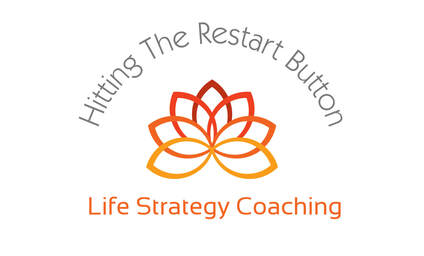




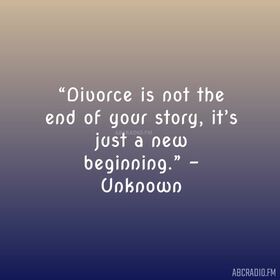

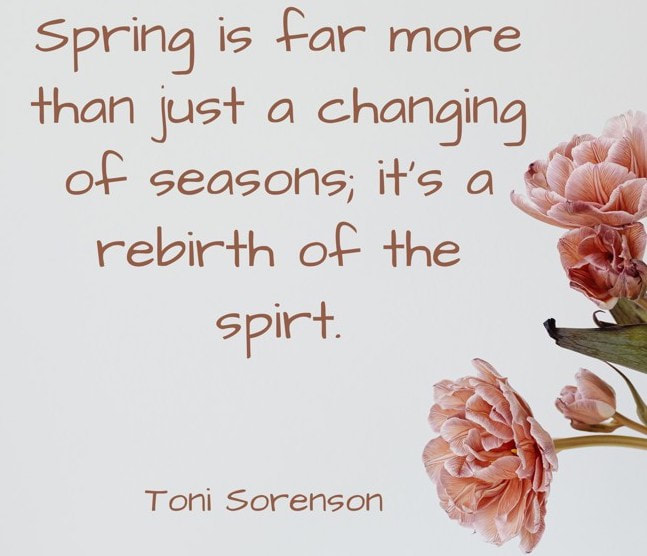


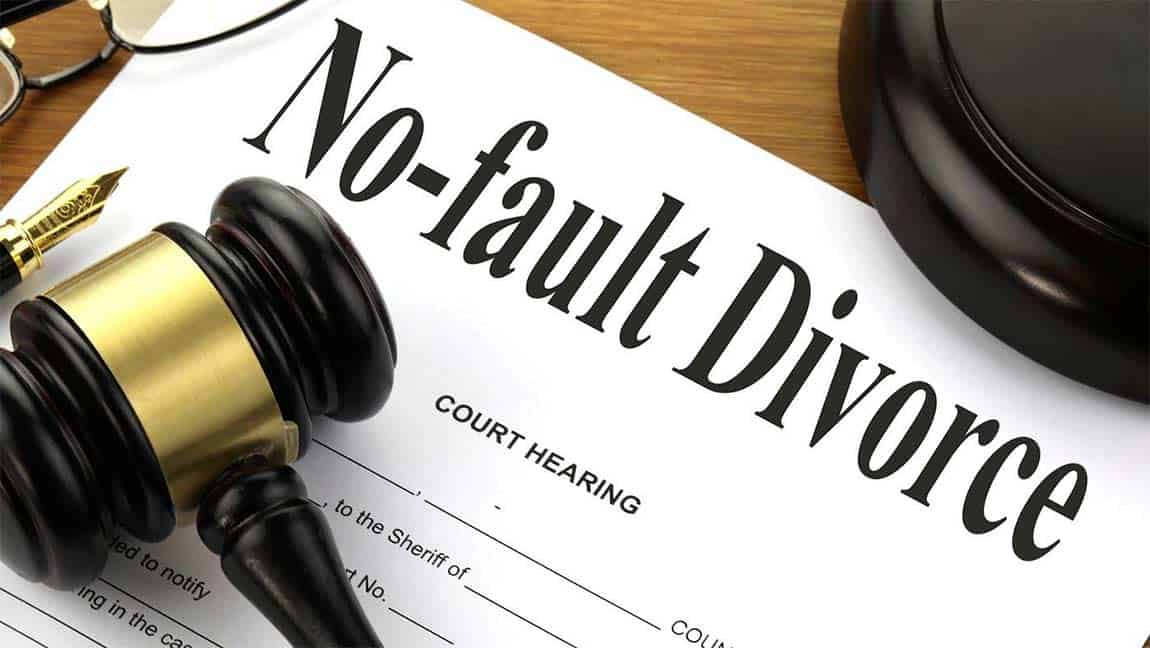

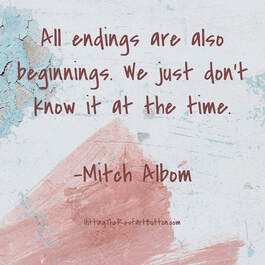


 RSS Feed
RSS Feed
